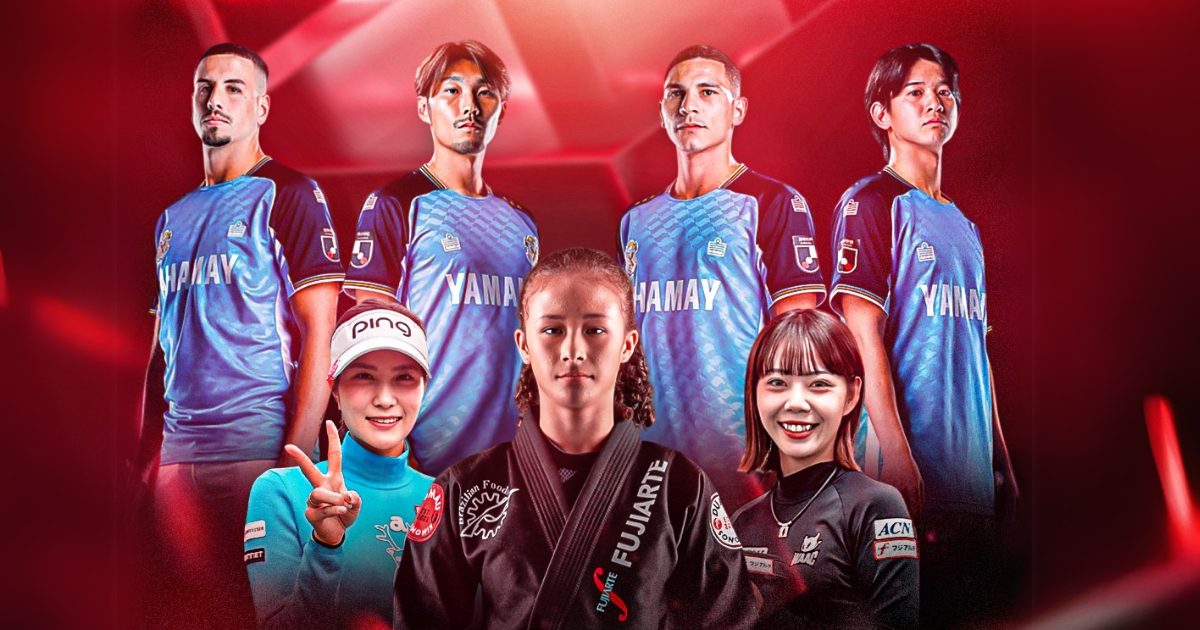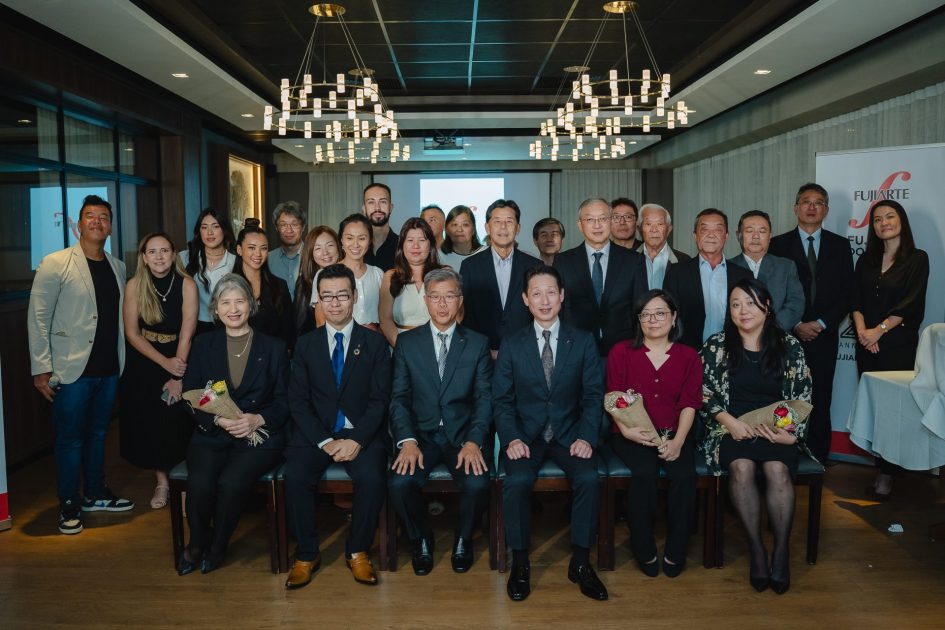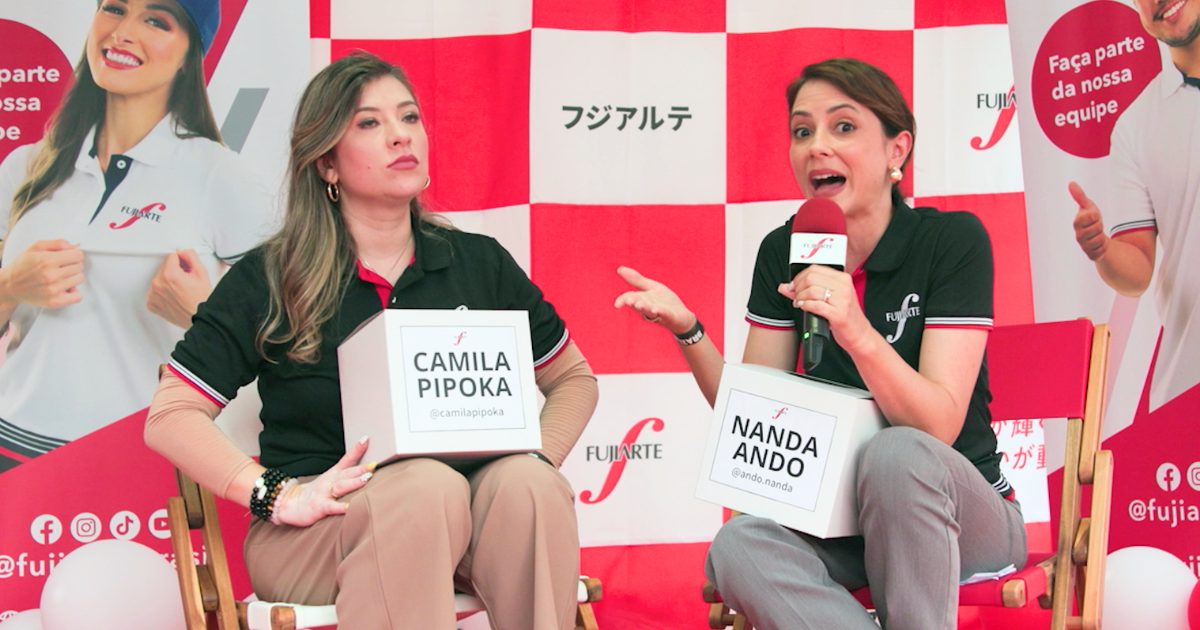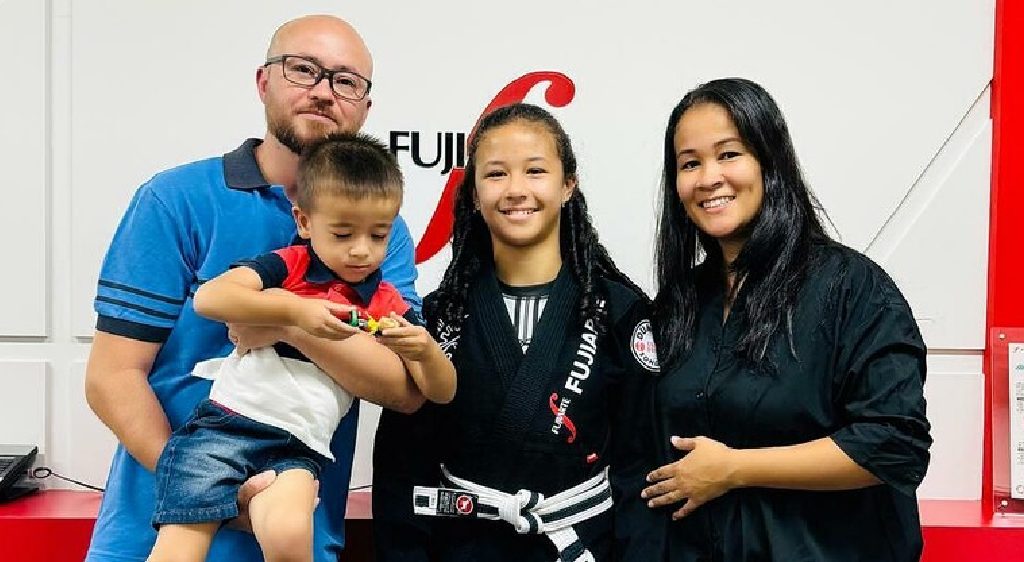Quando a Empresa Acredita no Esporte

Para a Fujiarte, apoiar o esporte é mais do que um gesto institucional — é uma forma de reconhecer, incentivar e valorizar pessoas e trajetórias.
Com evento em São Paulo, Fujiarte comemora 20 anos de crescimento no Brasil

Sede da empresa no Brasil celebrou duas décadas desde sua inauguração em São Paulo com um jantar especial, reunindo convidados para uma noite de homenagens
Sede da Fujiarte em São Paulo comemora 20 anos conectando brasileiros com oportunidades no Japão

Fundada em 2005, a Fujiarte do Brasil Pororoca Recursos Humanos Ltd., agência ligada ao Grupo Fujiarte e localizada no bairro da Liberdade, em São Paulo, completa 20 anos de atuação conectando trabalhadores brasileiros ao mercado de trabalho japonês. Desde sua criação, a agência facilita o recrutamento de pessoas no Brasil para vagas no Japão, oferecendo orientação e suporte em todas as etapas do processo. A Fujiarte do Brasil atende candidatos de todo o Brasil, realizando atendimento e entrevistas online, encaminhamento para o visto e suporte desde o primeiro contato até o embarque para o Japão. “Nossa principal função no Brasil é recrutar mão de obra para trabalhar no Japão. Também atuamos com empresas japonesas no Brasil, conectando trabalhadores que já têm experiência com a cultura japonesa. Cerca de 90% das pessoas recrutadas vão para o Japão.” – destaca o Presidente da Fujiarte do Brasil, Ryouji Moriyama, reforçando o papel estratégico da Fujiarte em aproximar os mercados de trabalho brasileiro e japonês. A escolha do bairro da Liberdade, reconhecido pela forte ligação com a cultura japonesa, reflete o compromisso da Fujiarte em fortalecer a conexão entre Brasil e Japão. Criada para atender trabalhadores interessados em oportunidades no Japão, a agência oferece um serviço eficiente e estruturado. Ao longo de 20 anos, a Fujiarte conectou mais de 10 mil brasileiros a empregos em diversas regiões e setores no Japão. Para celebrar esse marco, a Fujiarte do Brasil realizará um evento especial no dia 14 de fevereiro, na churrascaria Fogo de Chão, em Moema, São Paulo. Moriyama afirma que o evento reunirá parceiros e colaboradores para um jantar comemorativo. “Será uma oportunidade para celebrar todas as conquistas e reforçar os laços que construímos ao longo desses anos.” A Fujiarte é responsável por todo o processo de recrutamento direto de candidatos de qualquer lugar do Brasil, oferecendo atendimento e entrevistas online, encaminhamento para o visto, orientação trabalhista e cultural, além de assistência desde o primeiro contato até o embarque para o Japão. Para garantir a comodidade de quem inicia uma nova vida no Japão, a empresa oferece benefícios exclusivos, como moradias mobiliadas com kits de cama, higiene, cozinha e outros itens essenciais, além de suporte contínuo, que já é uma característica marcante da Fujiarte. A Fujiarte do Brasil reforça sua missão de oferecer suporte confiável aos trabalhadores brasileiros que buscam construir um futuro no Japão.
Camila Pipoka e Nanda respondem perguntas dos seguidores em evento

As influenciadoras respondera perguntas deixadas pelos seguidores em uma caixinha
durante em evento patrocinado pela Fujiarte
Isabela Kadoguti: Young Jiu-Jitsu Champion

Isabela Kadoguti: Young Jiu-Jitsu Champion Isabela, a promising young jiu-jitsu player, in character with her family The young promise of jiu-jitsu, Isabela Ayumi Kitasada Kadoguti Twenty-two gold medals, two silver and one bronze. These are the impressive numbers that already define the young promise of jiu-jitsu, Isabela Ayumi Kitasada Kadoguti. Currently 12 years old, Isabela, born in Brazil and an athlete since the age of 9, shines on the mats of Japan, where she has lived since the age of five in Toyoake-shi, with her parents and little brother Lucas. A 6th grader at a Brazilian school, she balances her school routine with intense training, beating opponents from different nationalities. The trajectory of our little interviewee reflects not only the overcoming of physical challenges, but also cultural and social adaptation, making her an inspiration for young athletes. Read a little more about this inspiring story in this issue of Guia JP magazine. A path of challenges and overcoming Since Isabela’s family moved to Japan, it hasn’t been easy to adapt. Especially in the school experience in Japanese schools, which presented challenges: “She stayed at Youchien, then went to first grade, and in second grade she switched. Because of bullying” recalls Catia, Isabela’s mother. “As her body reacted badly, we had to change schools”, adds. The lack of a more diverse community at the initial school contributed to the isolation: “It was just her. That doesn’t help, does it? Just her. But I think if there had been other schools, other foreigners… and the school, I think if the teachers had been better prepared to deal with foreigners, I think it would have worked with the Japanese girl,” says the mother. After you went to the Brazilian school, how did you adapt? For Isabela, the change was a “turning point”. “Oh, it was better, because they’re more attentive there,” says the little athlete. How did jiu-jitsu come into your life? What was it like? “My mother got me into ballet because I saw my friends doing it and I wanted to join, but I didn’t like it very much because the teacher was very strict,” Isabela recalls. The change happened almost by chance, but it was decisive: “Then there was Jiu-Jitsu, which was near our house, and my parents asked if I wanted to do it. So I went and did it and I liked it”. That’s how, in 2021, a trial class at the MY Bjj Team academy transformed the young athlete’s sporting path. Even though there was no one around her practicing the sport, Isabela’s connection with jiu-jitsu was instant and natural: “There was no one else in the family who practiced either,” says her mother, emphasizing that the choice was completely her own. After a year away from the mats due to Covid-19, Isabela resumed her training routine, but at a new gym – Impacto Kids Kyuban Danchi in Nagoya – where she met several children who practiced the sport, which led her to discover the world of competitions. This change was a turning point for her jiu-jitsu career: “I joined Impacto in October 2022 and, from then on, I started competing,” she says. Nervousness, overcoming and victories mark the first competitions Isabela’s first competitions were marked by nerves, something natural for a young athlete at the start of her career: “I was nervous because it was my first championship,” admits Isabela, recalling the challenges she faced the first time she stepped onto the mat to compete: “I didn’t know the rules either,” she says, stressing that despite the difficulties, she managed to overcome the pressure. However, even with her nerves, Isabela’s talent began to shine through right from the start. “In my first championship, I managed to win by a point,” she says. That first victory, albeit a narrow one, was a milestone in his career, giving him the motivation he needed to continue and improve in the sport. Isabela celebrating her graduation with her family What was the most exciting story in a championship? “I think it was Pan Kids, which was in the United States and is a children’s world championship. There were eleven girls in my category and I fought four times. I finished three fights and the last one I lost by an advantage,” says the athlete, who won the silver medal in the competition, largely because the rules in the USA are different from those in Japan, where there is no advantage in scoring. Cow do you reconcile your training and study routine today? Reconciling studies and top-level sport has never been easy, and Isabela has experienced it first-hand. “Today I wake up, have breakfast and get ready for school. If it’s Tuesday, I train for an hour and a half after school,” describes the young athlete, whose routine is full, especially considering that her study hours are in the afternoon, from 1pm to 5pm. Isabela’s journey to school already takes up a lot of time, as transportation can take up to an hour to arrive. “She gets home, just changes her clothes and eats in the car, because the gym is 40 minutes away,” says Isabela’s mother, highlighting the family’s commitment to supporting her daughter’s intensive training. On Monday, Wednesday and Friday, training is a fixed part of the routine at the Impacto Nagoya gym, with Saturday dedicated to a different gym, Impacto Hinode, in Yatomi. As well as the daily challenges, the pressure for results at the championships has also intensified, especially with the demands of the ranking: “This year is very important for her. Last year the score was over 100, but this year she has to reach over 200,” says Catia. The tournaments, however, are usually held in distant cities such as Tokyo and Osaka, requiring even more of the family’s logistics and commitment. “Now, in addition to normal training, she is also training on Tuesdays, Saturdays and Sundays, because she has to chase the scores,” concludes her mother, emphasizing the young athlete’s absolute dedication in her quest for excellence in jiu-jitsu, a
Isabela Kadoguti: Young Jiu-Jitsu Champion

The young promise of jiu-jitsu, Isabela Ayumi Kitasada Kadoguti Twenty-two gold medals, two silver and one bronze. These are the impressive numbers that already define the young promise of jiu-jitsu, Isabela Ayumi Kitasada Kadoguti. Currently 12 years old, Isabela, born in Brazil and an athlete since the age of 9, shines on the mats of Japan, where she has lived since the age of five in Toyoake-shi, with her parents and little brother Lucas. A 6th grader at a Brazilian school, she balances her school routine with intense training, beating opponents from different nationalities. The trajectory of our little interviewee reflects not only the overcoming of physical challenges, but also cultural and social adaptation, making her an inspiration for young athletes. Read a little more about this inspiring story in this issue of Guia JP magazine. A path of challenges and overcoming Since Isabela’s family moved to Japan, it hasn’t been easy to adapt. Especially in the school experience in Japanese schools, which presented challenges: “She stayed at Youchien, then went to first grade, and in second grade she switched. Because of bullying,” recalls Catia, Isabela’s mother. “As her body reacted badly, we had to change schools,” she adds. The lack of a more diverse community at the initial school contributed to the isolation: “It was just her. That doesn’t help, does it? It was just her. But I think that if there had been other schools, other foreigners… and the school, I think that if the teachers had been better prepared to deal with foreigners, I think it would have worked with the Japanese girl,” says the mother. After you went to the Brazilian school, how did you adapt? For Isabela, the change was a “turning point”. “Oh, it was better, because they’re more attentive there,” says the little athlete. How did jiu-jitsu come into your life? What was it like? “My mother got me into ballet because I saw my friends doing it and I wanted to join, but I didn’t like it very much because the teacher was very strict,” Isabela recalls. The change happened almost by chance, but it was decisive: “Then there was Jiu-Jitsu, which was near our house, and my parents asked if I wanted to do it. So I went and did it and I liked it”. That’s how, in 2021, a trial class at the MY Bjj Team academy transformed the young athlete’s sporting path. Even though there was no one around her practicing the sport, Isabela’s connection with jiu-jitsu was instant and natural: “There was no one else in the family who practiced either,” says her mother, emphasizing that the choice was completely her own. After a year away from the mats due to Covid-19, Isabela resumed her training routine, but at a new gym – Impacto Kids Kyuban Danchi in Nagoya – where she met several children who practiced the sport, which led her to discover the world of competitions. This change was a turning point for her jiu-jitsu career: “I joined Impacto in October 2022 and, from then on, I started competing,” she says. Nervousness, overcoming and victories mark the first competitions Isabela’s first competitions were marked by nerves, something natural for a young athlete at the start of her career: “I was nervous because it was my first championship,” admits Isabela, recalling the challenges she faced the first few times she stepped onto the mat to compete: “I didn’t know the rules either,” she says, stressing that despite the difficulties, she managed to overcome the pressure. However, even with her nerves, Isabela’s talent began to shine through right from the start. “In the first championship, I managed to win by a point,” she says. That first victory, albeit a narrow one, was a milestone in his career, giving him the motivation he needed to continue and improve in the sport. What was the most exciting story in a championship? “I think it was Pan Kids, which was in the United States and is a children’s world championship. There were eleven girls in my category and I fought four times. I finished three fights and the last one I lost by an advantage,” says the athlete, who won the silver medal in the competition, largely because the rules in the USA are different from those in Japan, where there is no advantage in scoring. Cow do you reconcile your training and study routine today? Reconciling studies and top-level sport has never been easy, and Isabela has experienced it first-hand. “Today I wake up, have breakfast and get ready for school. If it’s Tuesday, I train for an hour and a half after school,” describes the young athlete, whose routine is full, especially considering that her study hours are in the afternoon, from 1pm to 5pm. Isabela’s journey to school already takes up a lot of time, as transportation can take up to an hour to arrive. “She gets home, just changes her clothes and eats in the car, because the gym is 40 minutes away,” comments Isabela’s mother, highlighting the family’s commitment to supporting her daughter’s intensive training. On Monday, Wednesday and Friday, training is a fixed part of the routine at the Impacto Nagoya gym, with Saturday dedicated to a different gym, Impacto Hinode, in Yatomi. As well as the daily challenges, the pressure for results at the championships has also intensified, especially with the demands of the ranking: “This year is very important for her. Last year the score was over 100, but this year she has to reach over 200,” says Catia. The tournaments, however, are usually held in distant cities, such as Tokyo and Osaka, requiring even more logistics and commitment from the family. “Now, in addition to normal training, she’s also training on Tuesdays, Saturdays and Sundays, because she has to chase the scores,” concludes her mother, emphasizing the young athlete’s absolute dedication in her quest for excellence in jiu-jitsu, a path that involves
